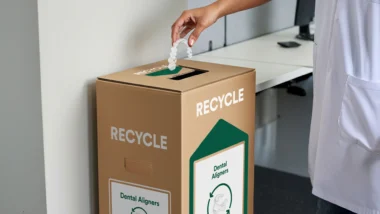With myeloma incidence rates set to more than double by 2035, the Leukaemia Foundation is urgently calling for greater awareness and equitable access to treatment across the country, so myeloma patients have the best chance of survival, no matter where they live.
As Myeloma Awareness Month launches today, Leukaemia Foundation CEO Chris Tanti said while survival rates for some blood cancers are improving, those diagnosed with myeloma still face a 50/50 chance of survival.
“As many as 4 in 5 Australians are not confident in recognising the main symptoms of a blood cancer, like myeloma, leaving them at risk of a life-threatening delayed diagnosis,” said Mr Tanti.
“With no way to prevent or screen for myeloma and no cure, it’s crucially important that Australians are able to identify myeloma symptoms to enable earlier diagnosis and treatment.
“Being aware of the symptoms could mean the difference between life and death[i].”
Sadly, 1,180 Australians lose their life to myeloma each year, and this figure is projected to more than double by 2035.
According to the Leukaemia Foundation, Myeloma Awareness Month is the perfect time to raise awareness on the signs and symptoms, and encourage people to see their doctor if they’re concerned.
“Too often we are hearing from patients who had no idea that myeloma was a blood cancer, or due to lack of awareness of the symptoms, experienced a delay in diagnosis, further impacting their quality of life.”
Myeloma is a complex blood cancer affecting the body’s plasma cells, which produce antibodies. Myeloma develops when plasma cells undergo a cancerous change and multiply at an increasing rate, taking over the bone marrow.
Although myeloma is more common in older adults, sadly it can also impact adults as young as 30 years old.
Mr Tanti said it was important for Australians to understand what symptoms to look out for and contact their doctor if these symptoms didn’t improve to enable an earlier diagnosis.
“While myeloma symptoms are similar to other blood cancers, patients also experience severe symptoms including weak bones prone to breaking as a result of this debilitating blood cancer,” Mr Tanti said.
Other common symptoms for people to look out for include bone pain, persistent tiredness, dizziness, anaemia, frequent or repeated infections and increased or unexplained bleeding or bruising.
The Leukaemia Foundation continues to stand beside Australians living with myeloma to be their voice, provide them with support and information, and fight to get them access to the best treatment options, wherever they live.
“There is an urgent need for increased support, additional resources, and ultimately more funds needed to assist the growing number of Australians impacted by myeloma.”
“If Australians are looking for a way to support people living with myeloma in this country today, we encourage them to sign up to World’s Greatest Shave in March, and either shave, cut, or colour their hair.”
Funds raised through World’s Greatest Shave go towards providing vital support for Australians diagnosed with myeloma and other blood cancers, as well as funding life-changing blood cancer research.
Since 2000, the Leukaemia Foundation has funded over 360 blood cancer research grants, representing over $86.5 million in blood cancer research funding in today’s current dollar value.
The funding is helping to make significant strides into finding better and more targeted treatment options for Australians living with myeloma, with the hope of one day finding a cure.
To help in the fight against myeloma and other blood cancers, please register to participate in the World’s Greatest Shave in March at worldsgreatestshave.com or call 1800 500 088.
Available for interview: Chris Tanti, CEO, Leukaemia Foundation
With an extensive background in the health sector, Chris joined the Leukaemia Foundation in February 2021 and brings a wealth of knowledge to the organisation. Chris began his career in social work and in clinical settings as a psychotherapist working across acute and public mental health before transitioning into management some 25 years ago. He has since held national and international senior executive positions including CEO of Australia’s National Disability Services and leading mental health organisation, Headspace. Chris is located in Melbourne and available for interviews via phone or online video platforms.
For all media enquiries please email [email protected].
-END-
About us:
About the Leukaemia Foundation: The Leukaemia Foundation stands with Australia to help cure and conquer blood cancer – with care. Together we are attacking every blood cancer, from every direction, in every way we can. We stand beside every Australian to be their voice and their someone-to-turn to, fighting to get them access to the best care. We also accelerate research that is delivering rapid advancements in blood cancer diagnosis and treatments. Plus, we provide services and support that empower people living with any blood cancer to live well after diagnosis. You can learn more about the Leukaemia Foundation and blood cancer at leukaemia.org.au
Contact details:
Contact the Leukaemia Foundation media team - [email protected]


